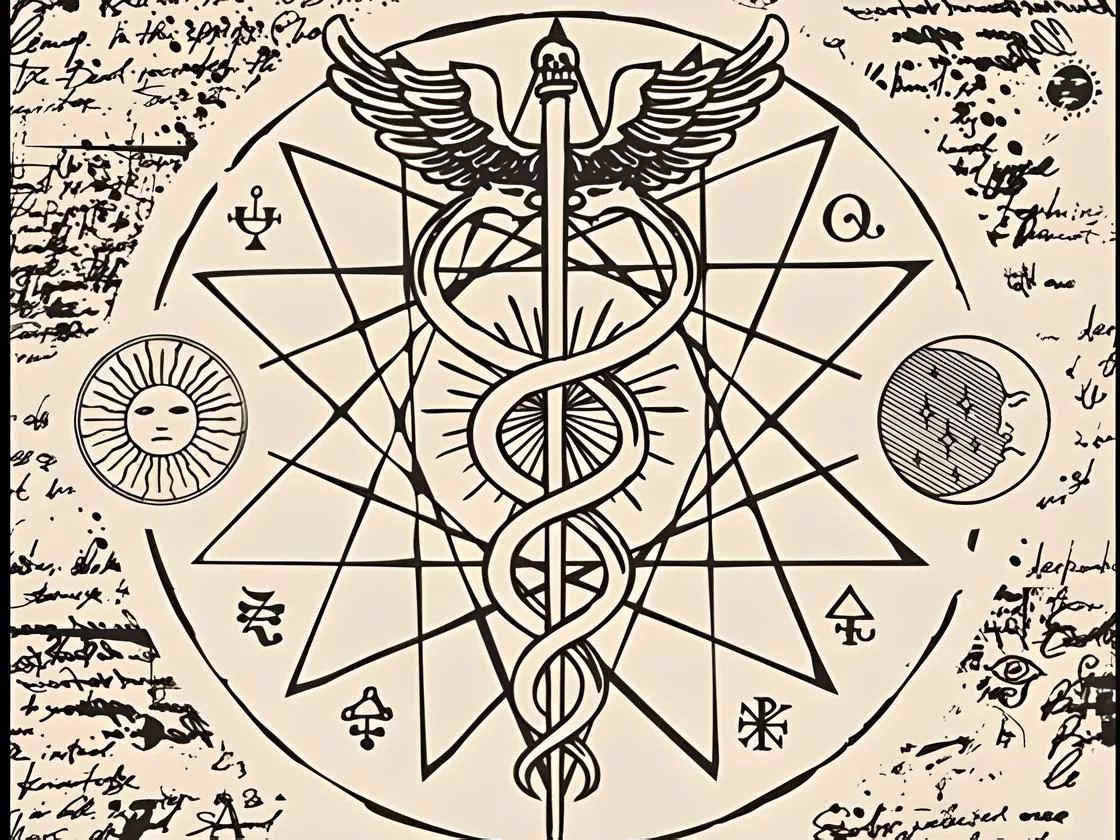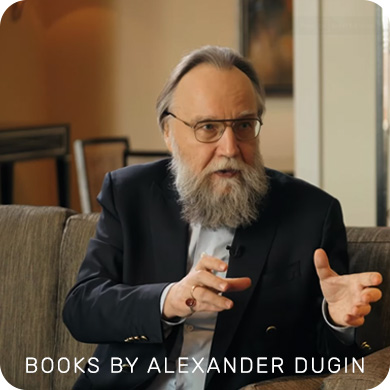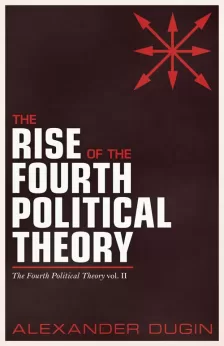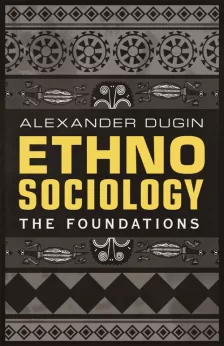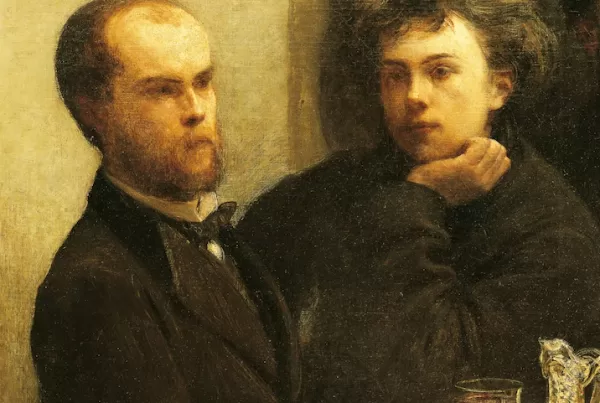dedicated to Liz — with best wishes and spiritual support
On 22 January 1961, the Chilean diplomat Miguel Serrano, who was then serving as the ambassador of his country to India, arrived in the Swiss village of Montagnola to meet with his friend, the writer and Nobel laureate Hermann Hesse, and to present him with one of the first copies of his new book, The Visits of the Queen of Sheba. That evening, Serrano shared with his older friend his reflections on immortality, nature, and what is truly hidden behind words. Hesse, according to his recollections, told Serrano,
Words are really just masks. Rarely can they convey true meaning; in fact, they rather hide it. If you can live in fantasy, then religion is unnecessary; for, with imagination, one can understand that after death a person is reincorporated into the universe. I’ll repeat — there’s no need to know if there’s anything beyond the edge of life. It’s only important to be able to do what is necessary; if you manage that, then, overall, everything will be right.
Recalling that conversation, Serrano wrote,
We were served red wine from Ticino, and I drank with Hesse. The bright daylight played on the crystal glasses, reflecting on the tablecloth with a rainbow gleam. Hesse sat opposite me, still holding his glass; it seemed he was meditating. The white light, reflected from the table, made his blue eyes even brighter.
“How did it happen that I ended up here?” I asked, slowly and heavily pronouncing the words. “How did it happen that I came from such distances and was fortunate enough to be here today with you?”
Hesse remained motionless, bathing in the winter light, and then said,
“Nothing is ever by chance. Only the necessary guests meet here. This is the Hermetic Circle…”
I immediately understood that these words were in no way accidental but came from the world of pure symbols.
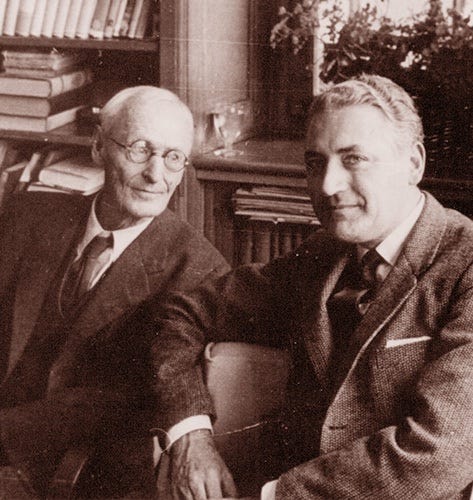
Herman Hesse and Miguel Serrano
The following day, Serrano visited another important friend, Dr Carl Jung, who lived nearby. They talked about karma, the Hindu world, and the necessity for people to live in accordance with their nature. Jung told Serrano,
One must pay close attention to self-knowledge and then live in accordance with that truth… Everyone must live in harmony with their own nature, both individually and collectively.
Miguel Serrano reflected on that evening as follows,
As before, time passed quickly and unnoticed. Yet, I saw the afternoon shadows thicken outside the window, fearing I might tire the professor. Still, before leaving, I wanted to say something more.
“Some time ago, when I was dining with Hesse, I asked him how it happened that fortune smiled upon me to be at his table; he said it wasn’t just chance since only the necessary guests meet here. He spoke of the Hermetic Circle.”
Jung softly smiled and said, “That’s true; minds attract. Only the faithful ones come, and we are guided by the unconscious because the unconscious knows.”
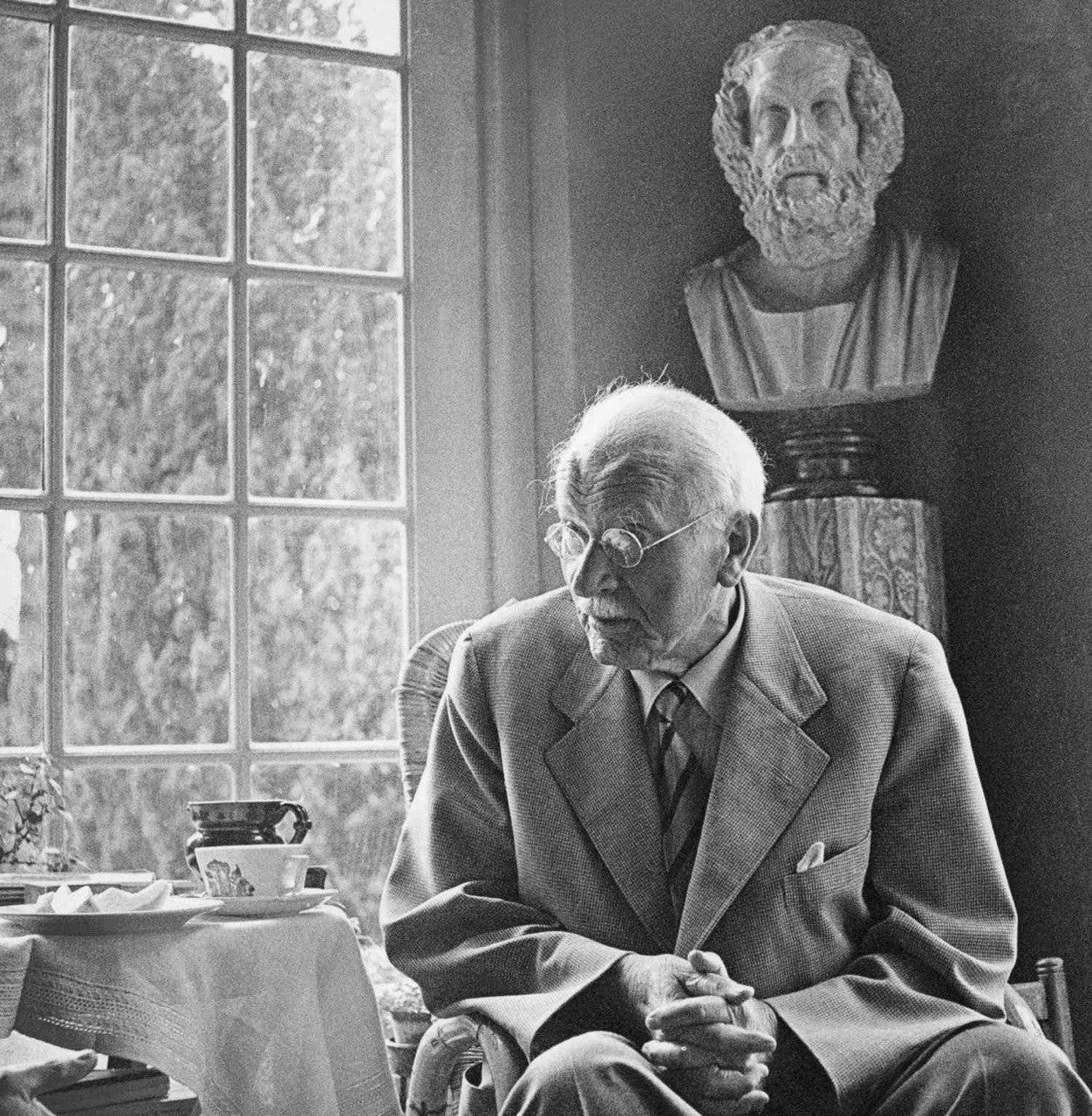
Carl Jung, in the last year of his life
That same year, Jung left this world at the age of 85, and the following year, Hesse also passed away at the same age. Both great teachers lived long and fruitful lives, leaving a colossal legacy and departing in harmony with themselves and the world, and Don Miguel preserved the memory of their last thoughts.
Sometime after Jung’s death, Serrano visited Jung’s family crypt, distinguished not only by the family crest but also by the following engraving on the stone: Primus homo de terra terrenus. Secundus homo de caelo caelestis. Vocatus atque non vocatus. Deus aderit, which translates as, ‘First, a terrestrial man of the earth. Then, a celestial man of the sky. Called or not called, God is present.’
The engraving on Jung’s crypt and his relatives conveys a thought in harmony with which everyone on the path should find themselves: in this world, we are all guests; we come for a while to leave our mark and gain the necessary experience, and then we move on. Our path is one of creation in the world; each is given something of their own: one writes texts, another paints, and a third helps people. We cannot know what awaits us in the future, but we should be open to the experiences and trials that life offers in its varied manifestations as they are given to us not by chance.
Life itself, when consciously understood, emerges as a precious value we should fiercely protect and remain optimistic about. It stands as our sole means to grasp and alter the fabric of reality, harbouring the potential for profound internal changes that serve as significant milestones on our journey. These transformative moments often come to light under extraordinary circumstances and, occasionally, through individuals who enter our lives to become a permanent presence.
The esoteric metaphor of the Hermetic Circle, carrying the imprint of the magical spirit of Egypt, where Hermes Trismegistus originated, can be simplified in the chaos of the modern world to an ‘inner circle’, in which, as Hesse said, ‘only the necessary people meet’; in the words of Jung, ‘the unconscious attracts the faithful’. They find their way there by various means — we meet them on the street, they seek us out in correspondence, or they come to visit us in the middle of the night at someone else’s invitation. If we manage to recognise the right person among them, this can and should become another step towards a productive and qualitative transformation of our reality.
